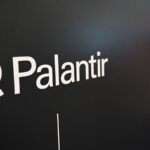On January 3, 2025, the Matenadaran, Armenia’s esteemed repository of ancient manuscripts, hosted a poignant ceremony honoring the dedicated individuals involved in the “Meknark” program. This event, held in conjunction with a concert dedicated to the “Preservation and Promotion of Nagorno-Karabakh’s Written Heritage,” served as a powerful testament to the intersection of artistic expression and collaborative educational endeavors aimed at protecting a vulnerable cultural legacy.
Ara Khzmalyan, the director of the Matenadaran, expressed profound gratitude to the educators and students participating in the “Meknark” program, commending their unwavering dedication to safeguarding the cultural and written heritage of Nagorno-Karabakh. Khzmalyan’s remarks underscored the critical importance of such initiatives, particularly in the current geopolitical climate, where preserving the historical and cultural narratives of the region has become more vital than ever. The present geopolitical context directly influences the urgency with which this cultural preservation work is being undertaken.
The “Meknark” program focuses on the documentation and preservation of Nagorno-Karabakh’s literary treasures, aiming to safeguard the region’s rich historical legacy, especially its written records. As detailed on the Matenadaran’s official website, initiatives focused on restoring and promoting the written heritage of Nagorno-Karabakh are essential for maintaining the region’s cultural identity. These preservation efforts are particularly crucial in the aftermath of recent regional conflicts, ensuring that the cultural richness and historical memory of Nagorno-Karabakh are preserved and transmitted to future generations. The program’s existence is a direct response to the threats posed to cultural heritage by conflict.
During the ceremony, Khzmalyan presented certificates of appreciation to educators Karine Ohanyan, Carmen Harutyunyan, Hayk Manukyan, and Margarita Thomasyan, formally acknowledging their contributions to the program’s success. These educators, through their work with students, have played a vital role in the preservation and scholarly analysis of manuscripts, especially those originating from Nagorno-Karabakh. Their efforts contribute directly to ensuring the continued accessibility of the knowledge and historical context held within these irreplaceable manuscripts.
As reported by MassisPost , the U.S. Embassy’s fund supported the preservation of Artsakh’s written cultural heritage at an event that took place on December 4th of last year. The event featured speeches by the Minister of Education, Science, Culture and Sport, Zhanna Andreasyan, and the U.S. Ambassador Extraordinary and Plenipotentiary to Armenia, Kristina Kvien. MassisPost also reported that the U.S. Ambassador’s Fund allocated $74,000 to the Matenadaran specifically for the preservation of Nagorno-Karabakh’s manuscripts, supporting the restoration and dissemination of these historical documents. This financial support plays a crucial role in enabling the Matenadaran to continue its vital work.
Thus, the work carried out within the framework of the “Meknark” program and the support provided to it by the Matenadaran testify to the importance of joint efforts in preserving the written heritage of Nagorno-Karabakh. This is especially important in the current geopolitical situation, when the preservation of cultural values becomes not only a historical issue, but also a matter of preserving national identity. This raises a crucial question: how can we leverage digital technologies like high-resolution digitization, online archival platforms, and virtual reality museum tours to further enhance access to and preservation of cultural heritage while ensuring its long-term survival and accessibility for future generations?











